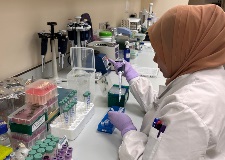Programme Partner: Clean Air Fund, C40 Cities
Region: Asia
Cities generate huge carbon emissions and expose millions to deadly air pollution, which claims the lives of 7 million people a year worldwide. Urban emissions from transport, commerce and energy cause enormous harm and are relatively unaddressed, despite cities being where two-thirds of the world’s population will live by mid-century. Yet cities can also be leaders on climate solutions, radically improve global health and save millions of lives.
To harness the power and potential of Asian cities, Clean Air Fund has developed Breathe Asia, a core component of our Breathe Cities network - 100 of the world’s major cities committed to clean air action. Breathe Asia will support 20 targeted cities in the region to halve their air pollution and climate emissions within 10 years. We will:
- Replicate and scale our proven model of deploying city-wide air quality sensors to provide data and insight about the source and health impacts of air pollution and emissions.
- With that data, equip campaigners and policy makers to identify and tackle the sources of air pollution and emissions, and build public and political pressure for both local change and ambitious national legislation and policies.
- Build and mobilise local and global movements and campaigns to hold power-holders accountable for air quality in Asia’s most polluted cities.
- Leverage these proven methods, plus commitment of Mayors, health groups, and environmental campaigners, to deliver WHO-grade ‘safe’ air by 2030 and halve climate pollution by 2040 in targeted cities.
Impact:
Breathe Asia will have a transformative, simultaneous impact on both climate and health by:
- Contributing to reducing 880 megatonnes of climate pollution across the Breathe Cities global network, equivalent to the annual greenhouse gas emissions of Germany
- Ensuring 20 Asian cities will deliver WHO safe air standards by 2030, resulting in cleaner air for millions of people
- Halving climate pollution in targeted Asian cities by 2040
- Preventing thousands of deaths attributable to toxic air
- Saving billions of dollars in healthcare and social costs

.png?sfvrsn=b0b98d94_1)

.tmb-.jpg?Culture=en&sfvrsn=806eec31_1)





.tmb-.jpg?Culture=en&sfvrsn=3ce051c2_1)
.tmb-.jpg?Culture=en&sfvrsn=205ca6bd_1)
